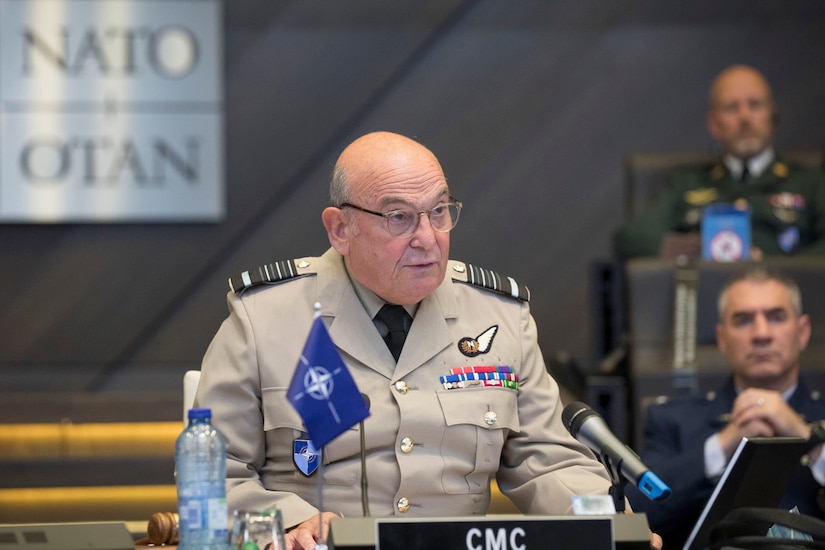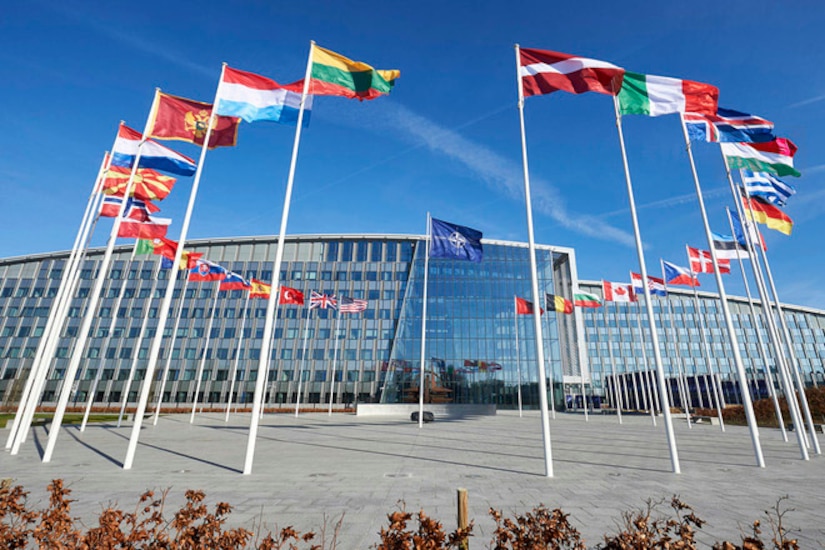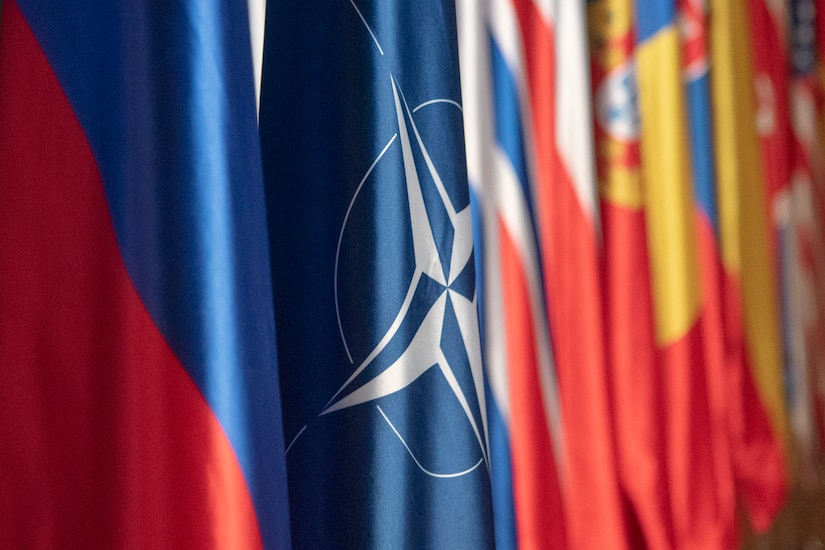Sept. 21, 2020 | , DOD News
The NATO chiefs of defense met virtually for the alliance's Military Committee meeting last week.
Under the leadership of Air Chief Marshal Sir Stuart Peach, the chairman of the committee, the chiefs discussed ongoing operations in a time of COVID-19 as well as future moves growing out of the alliance's new strategy. Army Gen. Mark A. Milley, the chairman of the Joint Chiefs of Staff, attended for the United States.

The meeting was to be in Rome, but the coronavirus has stopped travel.
Peach said he has been struck by the "fortitude and community spirit that has emerged" because of the pandemic. "In times of trouble, people have come together, focusing on what unites them and not what separates them, to help those in need," he said.
NATO as an organization has helped the allies in this time of need by ensuring crucial capabilities are where medical experts need them and by ensuring that the right equipment gets in the right hands.
Alliance service members are also carrying on their mission of deterrence and stability, Peach said.
"Speaking virtually to the 30 allied chiefs of defense today, I was encouraged by their interaction — the coming together of friends, colleagues, all united in their effort to provide the best possible military advice for NATO," he said.
The chiefs shared best practices for the pandemic, identified lessons, pooled resources and assisted one another through the Euro-Atlantic Disaster Response Coordination Center.
The need for deterrence and stability remains as "state and non-state actors have kept up their efforts to manipulate, disrupt, deny and exploit in order to achieve their aims," Peach said.

The chiefs focused on what the alliance has achieved, what needs to be done and what resources NATO service members need to accomplish the missions.
The chiefs started by discussing the alliance missions in Afghanistan, Iraq and Kosovo. They also discussed the multinational battlegroups in the east of the alliance, the air policing mission and NATO maritime deployments.
Air Force Gen. Tod D. Wolters, NATO's Supreme Allied Commander Europe, briefed the chiefs on these missions. "Resolute Support Mission in Afghanistan was a key point of discussion with the peace efforts ongoing and the encouraging progress being made," the air chief marshal said. "The chiefs of defense reiterated their continued support for Afghanistan and stressed that the military presence of the alliance and its partners in the Resolute Support Mission in Afghanistan will remain conditions-based."
There are roughly 12,000 NATO troops in Afghanistan supporting the Afghan security forces. "A peaceful and stable Afghanistan is in everybody's interest," he said. "NATO allies and partners will continue to play our part."
The NATO mission in Iraq will continue training Iraqi security forces to build their capacity as a hedge against the resurgence of terrorism in the region.

"NATO's Kosovo Force marked its 21st anniversary this year (and) allied (chiefs) confirm their full commitment and that mission remains unchanged," Peach said.
There are about 3,400 troops provided by 27 NATO members and partners in Kosovo. "We regularly assess our KFOR mission and it has been agreed by Allies that we should maintain the current strength," he said.
The chiefs also heard about the precautions taken to protect troops during the pandemic. Peach stated that the operational readiness of NATO forces remains undiminished.
The chiefs also looked at the deterrence and defense of the Euro-Atlantic area and NATO's warfighting capstone concept. These follow from NATO's new military strategy. "The deterrence and defense of the Euro-Atlantic area concept helps set out NATO's military priorities and approach to current and future threats," he said. "NATO's warfighting capstone concept is based on a 20-year view from a warfighting perspective."
Finally, the chiefs discussed Russia. Peach said the alliance's relationship with Russia is complex.
"We have been adversaries, partners and colleagues in countering terrorism, but since the illegal annexation of Crimea in 2014, our relationship has entered a new phase" he said. "There has been a pattern of destabilizing behavior from Russia — including aggressive actions against their neighbors, election interference and cyber-attacks."
Russian propaganda outlets have falsely accused NATO of creating and spreading COVID-19, and Russia has escalated tensions by developing hypersonic weapons. "These systems are clearly a concern for this committee," he said. "We will maintain our deterrence and defense, and we will not mirror Russia's actions."








No comments:
Post a Comment